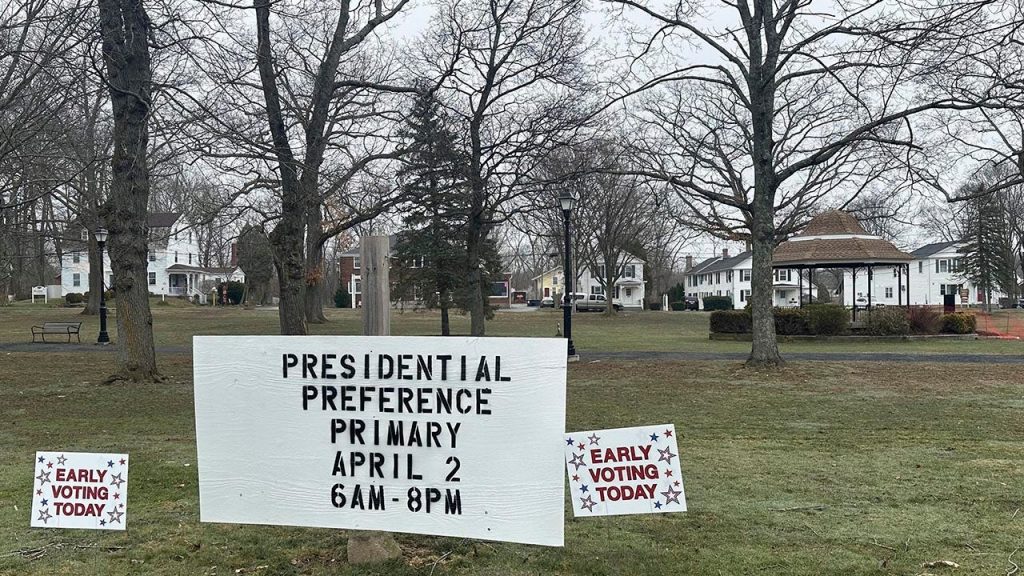Connecticut recently allowed for early in-person voting for the first time ahead of the state’s presidential primary. Only 13,476 voters out of 1.2 million registered voters participated in early voting, suggesting a low turnout. A constitutional amendment was passed in 2022 to allow for early voting, and the Senate approved a bill to allow 14 days of early voting for the general election in 2023. Republicans had expressed concerns about voter security connected to early voting, but election officials have assured that the process is secure and organized.
Despite initial concerns about voter security, Republicans like Peggy Roberts, the registrar of voters in Stonington, have found the early voting rollout to be organized and secure. The new system immediately marks voters as having cast their ballots in the centralized registration system to prevent cheating. While some voters, like JoLynn Brochu, worry too much opportunity for cheating exists with the new system, others see the benefits of early voting and the importance of Republicans participating in this process. Some states, such as Alabama, Delaware, Mississippi, and New Hampshire, still do not allow early voting, with Delaware having previously allowed early voting before it was ruled unconstitutional in February.
Early voting in Connecticut has been seen as a historic moment, providing more opportunities for people to vote. Secretary of the State Stephanie Thomas praised the initiative and the response from voters, noting that the system was tested successfully. However, there are still some challenges to be addressed, such as streamlining the process of looking up voters in the computer database to make it more efficient for the general election. Overall, the early voting process in Connecticut has been well-received, with voters appreciating the convenience and security of the system.
As the presidential election approaches, and with an eye toward the 2024 election, Republicans have made a big push for early voting in 2023. Republican voter turnout during early voting was lower than expected, but this may change in future elections as more voters become familiar with the process. Some Republicans have pointed to the need for the party to embrace early voting, even though concerns about potential cheating persist. The implementation of early voting in Connecticut marks a significant step towards modernizing the voting system and expanding access to the electoral process for all voters.
In conclusion, Connecticut’s recent introduction of early voting has been met with a mixed response from voters, but overall has been considered a successful initiative. The state’s move to allow for early voting reflects a broader trend in many states towards expanding access to the voting process. While challenges remain, such as ensuring the security of the system and streamlining processes, the early voting initiative in Connecticut has laid the groundwork for future elections and has the potential to increase voter participation in the state. Republicans and Democrats alike have the opportunity to utilize early voting to make their voices heard and shape the outcomes of future elections.















